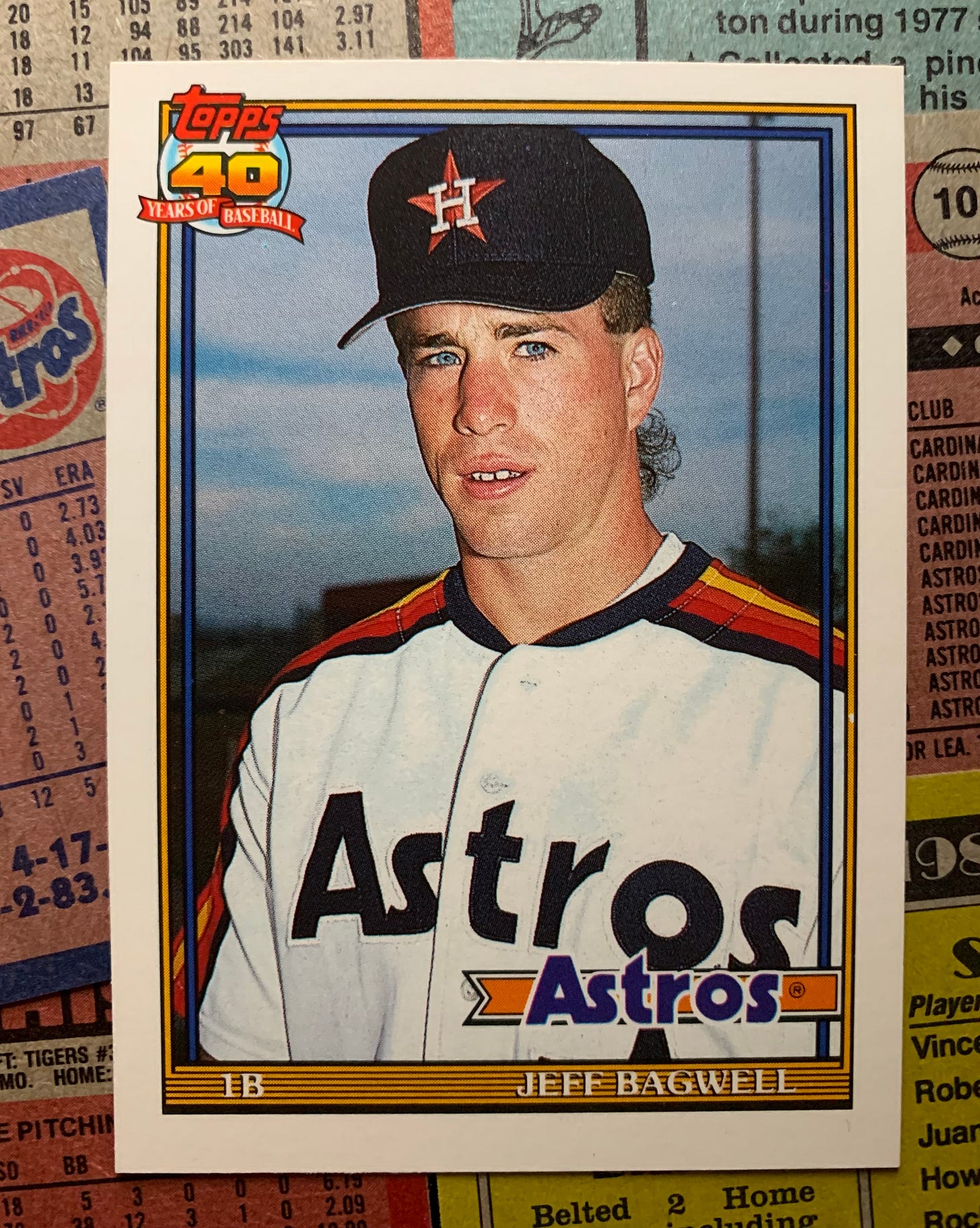Bagwell Was There When Baseball Stopped
The Hall of Famer seems optimistic about the 2022 MLB season
Welcome to Warning Track Power, a weekly newsletter of baseball stories and analysis grounded in front office and scouting experiences and the personalities encountered along the way. No threat of lockout here!
The Collective Bargaining Agreement has expired. There’s now a work stoppage as Major League Baseball’s owners have voted to lock out the players.
Happy holidays to you, too.
The last time we were here, it was 1994. The players went on strike on August 12, and the season was ultimately canceled. Among other casualties, the Montreal Expos’ best season in franchise history abruptly ended at 74-40 (six games up in the NL East), and Tony Gwynn’s pursuit of .400 was forever frozen at .394.
Back then, the Astros were still in the National League, and the only group gaining notoriety for banging on trash cans was the Broadway cast of Stomp. Simpler times, my friends.
The NL MVP in ’94 managed to put up numbers that belie the fact that his team only played 115 games that year. Astros first baseman Jeff Bagwell hit .368 with 39 home runs, 116 RBIs, and 104 runs scored. He led all of baseball with a .750 slugging percentage, and picked up the only Gold Glove of his career, too.
“Personally, I never thought that the strike would happen,” Bagwell told me.
The future Hall of Famer was 26 at the time, and he admits that the reality of what was happening wasn’t fully appreciated as the season was playing out. “When you’re young, you’re oblivious. You’re in the moment of what you’re doing. I don’t think we understood… I didn’t really understand the big picture.”
The big picture, of course, is baseball as a business.
Younger players are consumed with doing enough to remain in the Major Leagues. Union politics won’t help them hit today’s starting pitcher. Besides, each team has a player rep to serve as the liaison to the Players Association and handle club-level matters.
Still, Bagwell had already had a brush with the cold reality of the game in 1990, when the Red Sox — the hometown team that had drafted him just one year earlier — traded him to the Astros for veteran pitcher Larry Andersen.
“It’s a business,” Bagwell said. “You’re a commodity.”
That 1994-95 strike was a long time ago in baseball terms. Ownership groups have turned over in almost every city. No players from back then are active today.
Corey Seager, who just signed a 10-year, $325 million contract with the Rangers, was born about three months before the strike began. Max Scherzer was 10. Albert Pujols — the oldest player in MLB last season — was 14.
Bagwell is sensitive to the fact that veteran players aren’t valued like they once were. There’s a voice — a certain kind of leadership — that’s lacking in today’s clubhouses; Bagwell mentions the importance of an inexperienced big leaguer being shown how to conduct himself and understanding what it means to be part of a union.
“It’s a crazy thought,” he said, when pondering the lockout. The lesson for today’s players, he added, is about “how big this is, and how it’s important for players to stay together.”
The timing of this stoppage, fortunately, allows both sides plenty of time to negotiate a new CBA without jeopardizing the 2022 season. It’s what everybody wants.
Bagwell shared that one veteran pitcher told him that he didn’t expect the lockout to change his offseason. The primary difference is that now the pitcher will work out in a gym rather than at the stadium. Of course, it might be a different story for a player rehabbing an injury — or one who was still a free agent when the lockout began.
More than 25 years later, Bagwell still carries some of the emotions of the strike with him. There was a meeting he attended with about 180 players in Arizona during that work stoppage. He remembers the frustration he felt when the conversation deviated from issues directly relevant to a return to play.
He’s glad that the timing of this lockout isn’t immediately affecting fans.
“If it’s going to happen, it’s better to happen now.”
Thank you for reading Warning Track Power. Subscribe now to have WTP delivered to your inbox every week without interruption. By the way, with 449 career home runs, Jeff Bagwell definitely did not have warning track power.

